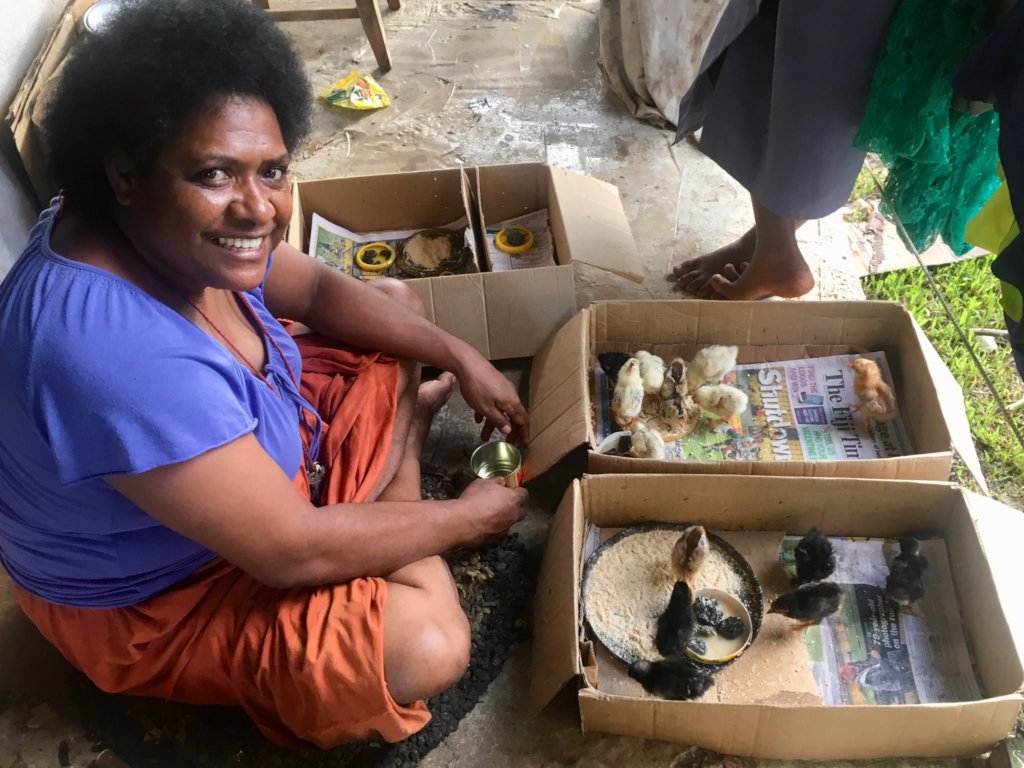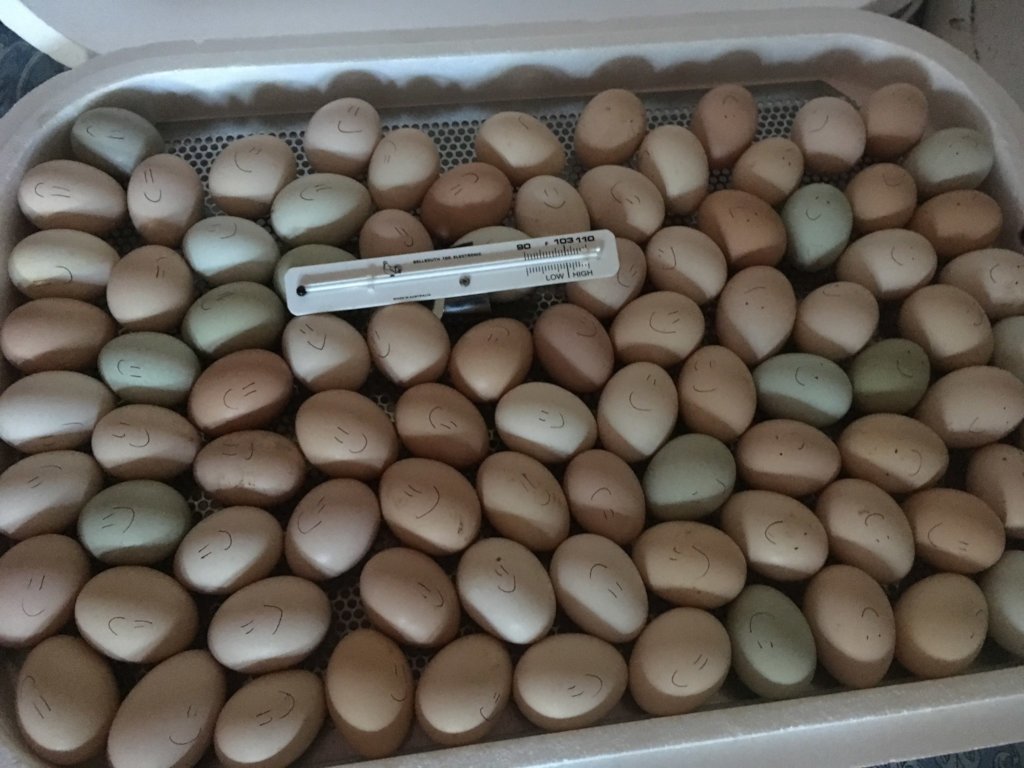By Austin Bowden-Kerby | Project facilitator
Communities continue to recover from the horrific cyclone disaster, and while some families continue to live in tents, and some classrooms at the schools continue to operate from tents, the rebuilding process is going well. However, the vegetation and traditional agroforests are recovering more slowly, as so many of the breadfruit and coconut and banana trees fell, but fortunately the bananas have already come back, and some of the surviving coconut trees have begun producing as well. Sweet potatoes are being produced in abundance, as is cassava. Full recovery will take another year or two.
The chickens we sent out with the workshop participants last year are laying eggs as well, mostly relying on foraging and on waste food. Communities have been taught how to prepare wild plants and to mix Morniga leaves with the chicken feed, but for now the chickens must be kept at low densities in each community, until such time as the coconut trees begin bearing heavily again, with the ideal chicken diet being coconut, morniga, and cassava, with supplemental foraging.
We have thus far sent out incubators to three communities affected by the disaster, with the 90-egg, 40 watt machines operating on solar power. Unfortunately, communities without access to solar power have been left out, and so we are looking into a simple low cost solar system as a solution, but in the mean time the villages with solar power are hatching chicks on behalf of the other communities.
The chicks are been hatching very successfully, and every month we are sending additional fertile eggs by boat for the community to incubate. The children help by digging worms and if an egg is infertile, it is boiled and crushed to feed the newborn chicks. A new excitement occurs with each new hatch, especially attracting the children, who learn to gently hold the chicks and to feed and give then fresh water regularly.
So we are very happy to report that hope has now replaced desperation, and the baby chicks are very much a part of that hope for a new day and for a better future.
Thanks so much for being part of this effort.
Project reports on GlobalGiving are posted directly to globalgiving.org by Project Leaders as they are completed, generally every 3-4 months. To protect the integrity of these documents, GlobalGiving does not alter them; therefore you may find some language or formatting issues.
If you donate to this project or have donated to this project, you can recieve an email when this project posts a report. You can also subscribe for reports without donating.

